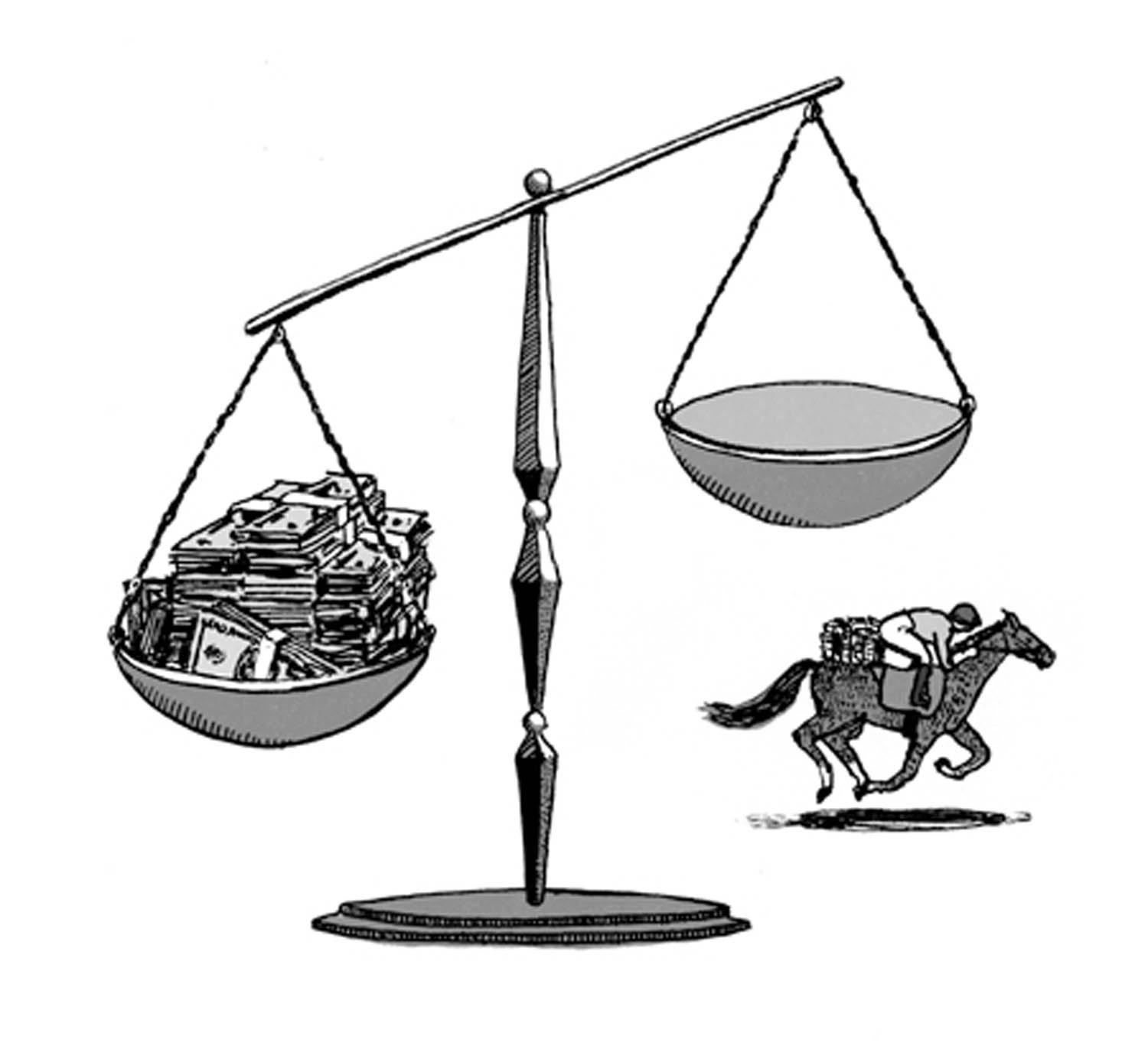
The book of Kings tells that the mothers of two newborns approached Solomon, that wise ruler, to settle a dispute. One of the babies had died, and each woman insisted that she was the mother of the survivor. Solomon proposed a deft solution: Cut the baby in two, half for each claimant. The true mother said she would rather give the baby up than see it harmed. Voilà: Case solved, justice done.
But what if Solomon had biblically feasted a little too bibulously the night before and not been paying attention? The story might have ended with tears and half-babies. That outcome might be just (if not a little hard-hearted), but it certainly wouldn’t be fair—not for the poor kid, anyway.
In legal terms, “justice” refers to a proper, lawful distribution of goods—not just concrete things, but also abstractions such as freedom. Something just has been properly meted out. By that criterion, notes James DiGiovanna, who
teaches philosophy at New York’s John Jay College of Criminal Justice, something can be just and at the same time profoundly unfair. “If my great-grandfather made a lot of money and passed it to me, and yours blew all his money at the track, and now you’re poor and I’m rich, well, that’s unfair,” he says. “You didn’t do anything to deserve poverty, and I didn’t do anything to deserve wealth. But it’s just, according to some conceptions of justice, as long as the money was properly acquired and properly passed on—basically, not acquired by theft or force.”
That distinction may gladden the hearts of oligarchs everywhere, and it remains a matter of contention among philosophers and legal scholars. The rub is defining just what constitutes “properly.” Plato and Confucius would tell you that propriety means accepting the correct order of things, the rule of virtuous monarchs and magistrates. The eminent libertarian philosopher Robert Nozick argued that justice is distributive correctness within the confines of certain principles. John Rawls, perhaps the most influential of modern scholars on the matter, would say that, yes,
justice is distributive correctness, but that a proper conception of justice makes an equation that in essence erases our distinction: Justice is fairness,
and fairness is justice.
What is “just” belongs to a system of abstractions, a cultural construct. What is “fair” seems to be innately wired into the human brain. We recognize fairness and unfairness as realities of our consciousness, as do other social species such as dogs and chimpanzees. It does little good to attempt to impose justice on a dog by yelling at him after the fact for peeing on the rug, but that dog will certainly feel unfairly treated if you give your other dog a biscuit but not him. That sense of fairness is an essential feature of any society built on reciprocal altruism: Today I give up something for you, tomorrow you give up something for me, and there has to be some way of keeping count of whose turn it is, biscuits included.
Are our present inequalities, such as uneven access to the good that is health care, unjust or unfair? They are certainly the latter. In a better world, most of us would think them unjust as well, and no vivisection of newborns would be required to prove the point.






